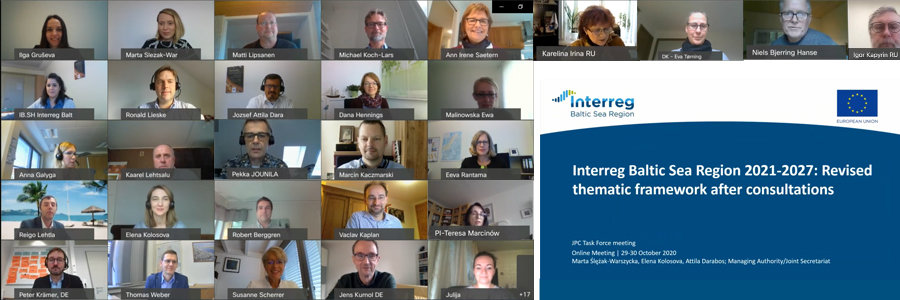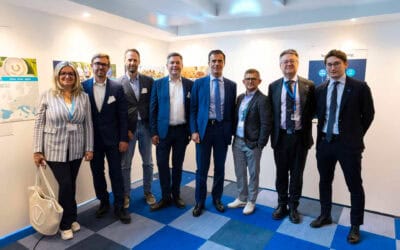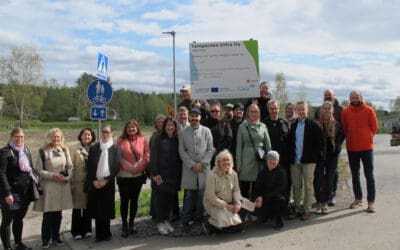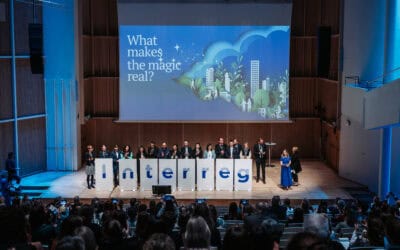Members of the Joint Programming Committee Task Force have agreed on the revised topics that will drive transnational cooperation in the Baltic Sea region in the next programming period 2021-2027.

© IB.SH
Towards Interreg Baltic Sea Region 2021-2027
Last week, delegations of eleven countries: EU members states and neighbouring partner countries from around the Baltic Sea, representatives of the European Commission and the Managing Authority/Joint Secretariat (MA/JS) discussed the future Interreg Baltic Sea Region 2021-2027. The online meeting was chaired by Ilga Gruševa from the Latvian Ministry of Environmental Protection and Regional Development.
Agreement on follow-up of comments received during consultations
How to best ensure that the future Programme facilitates the transition of the Baltic Sea region to a cleaner, climate neutral and a better place to live for all citizens? More than 700 comments collected in the public consultation provided valuable guidance and reality check. This enabled the Joint Programming Committee Tasks Force with support of the MA/JS and the consulting company Ramboll to review the Programme’s thematic framework so that it better reflects the needs in the region.
“We are building the future Programme around seven major topics. We are certain that they will create a strong framework for transnational cooperation in the region, a framework that will help great solutions developed in Interreg projects become common practice,” said Eeva Rantama, who leads the development of the future thematic focus of the Programme from the MA/JS side.
Plans to simplify procedures
Apart from setting the core of the thematic framework, the Joint Programming Committee Task Force discussed new approaches to simplify procedures. For example, the future Programme shall release project partners from the administrative burden associated with the current approach to State aid. Also, the measures to introduce simplified cost options are under thorough consideration.
Support to the governance of the EU Strategy for the Baltic Sea Region
As a follow-up to the discussions at previous meetings, Simon Stermann, the chair of the EUSBSR National Coordinators’ Group, presented an updated proposal on how Interreg Baltic Sea Region could support the EU Strategy for the Baltic Sea Region. His main points included support to policy area coordinators, organisation of the strategy fora and support to a newly established Baltic Sea Strategy Point for coordination and communication of the EU Strategy. The proposal was complemented with the Programme’s proposal on support under the so-called Interreg-specific objective 1, which includes also a continuation of the project platforms that were successfully launched during the current funding period.
Outlook and next steps
The green light for the overall structure of priorities and specific objectives of Interreg Baltic Sea Region 2021-2027 initiates the process of drafting the actual Programme documents. Already at the next meeting of the Joint Programming Committee in early December, the Joint Programming Committee members shall discuss the first draft. Although the approval process still will take a couple of steps, the preparations for the future Programme have entered a more mature stage.
Pekka Jounila from the European Commission presented updates on the time schedule for the common provisions regulation as well as the progress made in discussing the European Regional Development and Cohesion Funds. In this context, the preparations for Interreg Baltic Sea Region 2021-2027 seem to be well on track and well in time.






